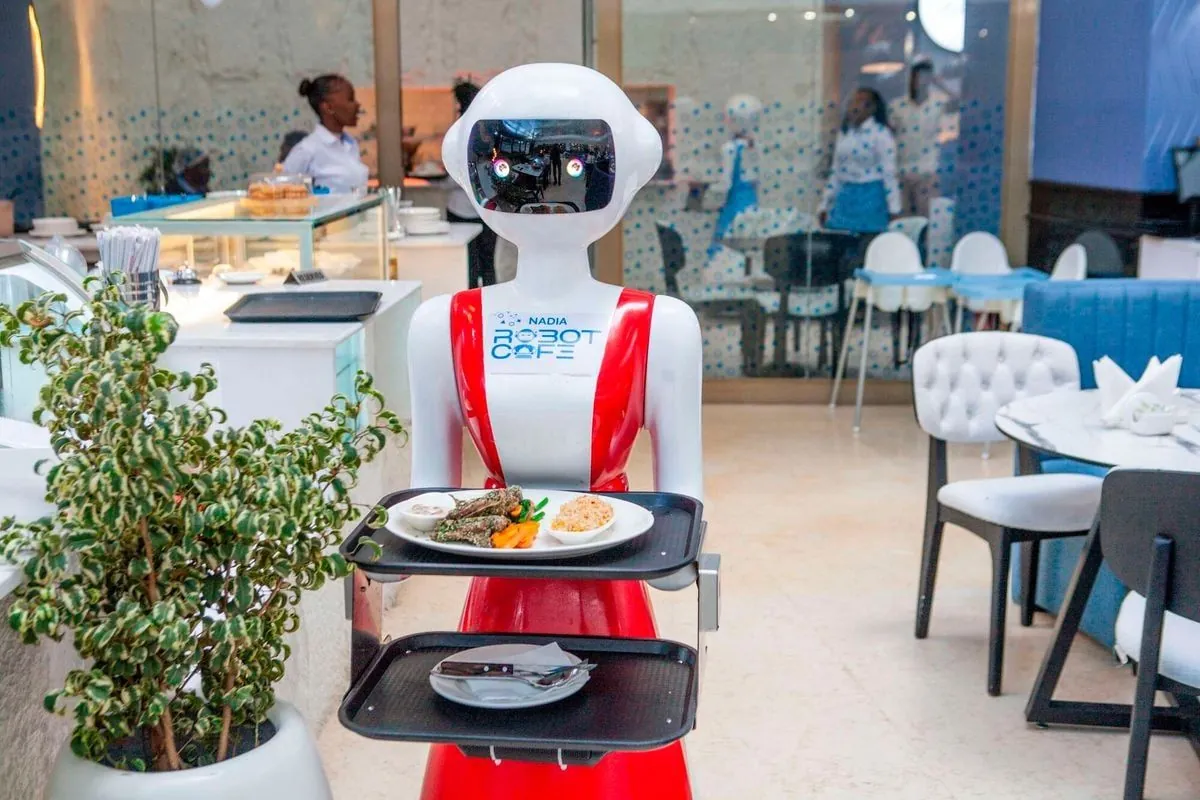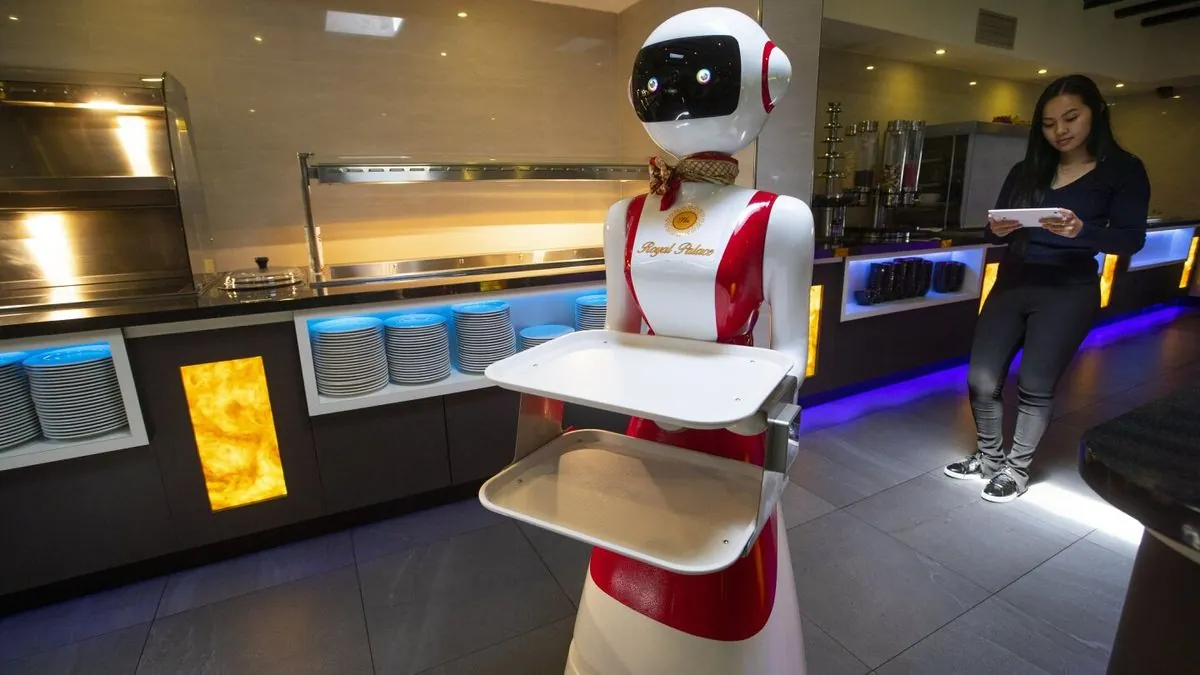Nairobi's Robot Cafe: A Glimpse into Kenya's Tech-Driven Future
Nairobi's Robot Cafe, featuring three robot waiters, showcases Kenya's growing tech industry. The unique eatery blends robotic and human service, attracting curious customers and sparking discussions about the future of hospitality.

In the heart of Nairobi, Kenya's bustling capital, a unique dining experience is captivating locals and tourists alike. The Robot Cafe, believed to be the first of its kind in East Africa, showcases the city's growing reputation as a tech hub, often referred to as the "Silicon Savannah."
At this innovative eatery, three robot waiters named Claire, R24, and Nadia glide among human staff, delivering meals to intrigued patrons. The sight of these mechanical servers has become a source of entertainment, with children giggling and young people eagerly capturing the moment on their smartphones.

The cafe's owner, Mohammed Abbas, drew inspiration from similar concepts he encountered in Asia and Europe. Despite the substantial cost of importing the robots, Abbas believes the investment has paid off, as the restaurant frequently bustles with curious customers eager to experience this futuristic service.
While the robots add a novel touch to the dining experience, they have limited capabilities. They can deliver pre-prepared meals and offer simple greetings, but cannot engage in full conversations or take orders directly from customers. Human waiters remain essential, using an iPad application to command the robots and handling tasks such as taking orders and serving drinks.
John Kariuki, the cafe's manager, emphasizes that the robots are not intended to replace human workers. He notes, "The robots are actually way too expensive for us to acquire, so if you are trying to save money, it is not going to work if you choose to go the robotic way."
The introduction of robotic waiters in Nairobi's hospitality scene reflects Kenya's growing tech industry. The country has made significant strides in digital innovation, with Nairobi hosting numerous tech startups and incubators. Kenya's Vision 2030 aims to transform the nation into a middle-income country, with technology playing a crucial role in this ambition.
However, the emergence of such technologies raises questions about their potential impact on the workforce, particularly in Africa, where the median age is approximately 19 years. Kenya, like many African nations, faces high youth unemployment rates, making the integration of new technologies a delicate balance.
Edith Ojwang, a hospitality industry expert, offers a nuanced perspective on the coexistence of robotic and human service:
"The hospitality industry is very diverse. We have clients who will prefer robotic service and full automation, while we also have clients who will prefer human service, the human touch and warmth that comes with human service so it is not entirely a threat to human labor because of the diverse nature of the hospitality client base."
As Kenya continues to invest in digital skills training programs and nurture its burgeoning tech ecosystem, initiatives like the Robot Cafe serve as both a novelty and a glimpse into the country's tech-driven future. While robots may not be replacing human workers en masse anytime soon, their presence in Nairobi's hospitality scene underscores the city's commitment to innovation and its growing reputation as a tech hub in East Africa.


































